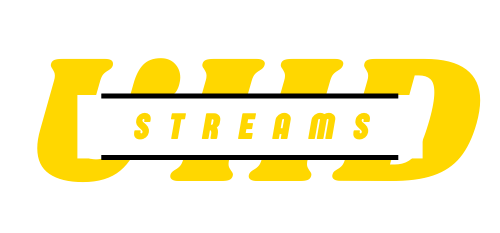
The world of education and professional development is changing fast. Traditional certifications are no longer the only way to prove skills and achievements. Digital badges and micro-credentials are emerging as the future of certifications. These modern forms of credentialing provide a more flexible, precise, and accessible way for people to showcase their abilities. This post dives into how digital badges are reshaping the certification landscape and why they represent the future of professional growth.
What Are Digital Badges and Micro-Credentials?
Digital badges are online representations of a specific skill or achievement. They are earned through online courses, workshops, or other learning activities and can be displayed on a digital profile, like LinkedIn or a personal website.
Micro-credentials are similar but focus on specific skills or knowledge in a given area. These credentials help learners demonstrate expertise in subjects like project management, coding, or leadership, often through a series of assessments or coursework.
Both badges and micro-credentials offer a more detailed and personalized way to highlight an individual’s competencies.
Benefits of Digital Badges and Micro-Credentials
1. Access to Learning Anytime, Anywhere
Digital badges and micro-credentials offer learners more flexibility. People can earn these credentials online, often at their own pace, without the need to attend a traditional classroom. This global accessibility makes them an ideal choice for anyone looking to upgrade their skills—regardless of location.
2. Precision in Skill Validation
Unlike general degrees, digital badges target specific skills. For example, a badge for “Python Programming” indicates clear proficiency in coding with Python, making it easier for employers to see exactly what a person can do.
3. Recognition of Lifelong Learning
Digital badges also promote continuous learning. As industries evolve, so do the skills required to succeed. Badges allow professionals to keep track of their ongoing development, ensuring that their qualifications stay relevant.
4. Instant Validation
Digital badges provide immediate feedback on achievement. Once you complete a course or demonstrate proficiency in a skill, you receive your badge—quickly and easily. This helps learners stay motivated and see their progress right away.
How Digital Badges Are Changing Credentialing
1. Speeding Up the Hiring Process
Employers can quickly view a candidate’s digital badges to verify their skills, speeding up the hiring process. Badges are linked to digital profiles, allowing for instant verification of qualifications, which is much faster than traditional resume checks.
2. Supporting Career Growth
Digital badges offer clear career pathways. As you collect badges, you build a visual record of your professional development. This helps both employees and employers understand skills progression, making it easier to align career goals with learning objectives.
3. Custom Credentialing for Employers
Many companies are now issuing custom digital badges for skills relevant to their industry. For instance, a company might award badges for completing internal training programs or achieving specific job-related goals. These badges help employees show expertise in a company’s unique processes.
The Role of Digital Badges in Education
1. Enhancing Traditional Degrees
Digital badges aren’t meant to replace traditional degrees. Instead, they complement them. Students can earn badges alongside their degrees, validating specialized skills like coding or digital marketing. This combination makes graduates more attractive to employers, as they offer both a degree and a skill-specific credential.
2. Customizing Your Learning Journey
With digital badges, learners can tailor their education to their career goals. Instead of following a rigid curriculum, students can choose badges that match their interests or the skills they need to develop for their chosen field. This approach makes education more relevant and personal.
The Future of Credentialing and Digital Badges
The future of credentialing is increasingly digital. As the job market becomes more skill-based, the demand for digital badges and micro-credentials will continue to grow. Here’s what to expect:
1. Stronger Collaboration Between Education and Industry
Educational institutions and companies will work more closely together to offer industry-specific badges. This collaboration ensures that learners gain skills that employers need, making the credentialing process more effective.
2. Wider Use in Professional Development
We will see more industries adopting digital badges for ongoing professional development. For example, healthcare professionals or digital marketers may earn badges to certify their skills in the latest industry tools and practices. This helps professionals stay up to date and advance their careers.
3. Global Standardization
As digital badges gain traction, global standards for recognition and verification will develop. This will ensure that badges issued by different institutions and platforms are widely accepted, offering a more unified system for validating skills.
Conclusion: Embracing the Future of Certifications
Digital badges and micro-credentials are changing the way we think about qualifications. They provide a flexible, personalized, and accessible way to recognize skills, motivate continuous learning, and demonstrate professional growth. For employers, they offer a clearer, more efficient way to verify skills. For learners, they provide the tools to build a career on a foundation of specific, verifiable expertise.



Leave a Reply